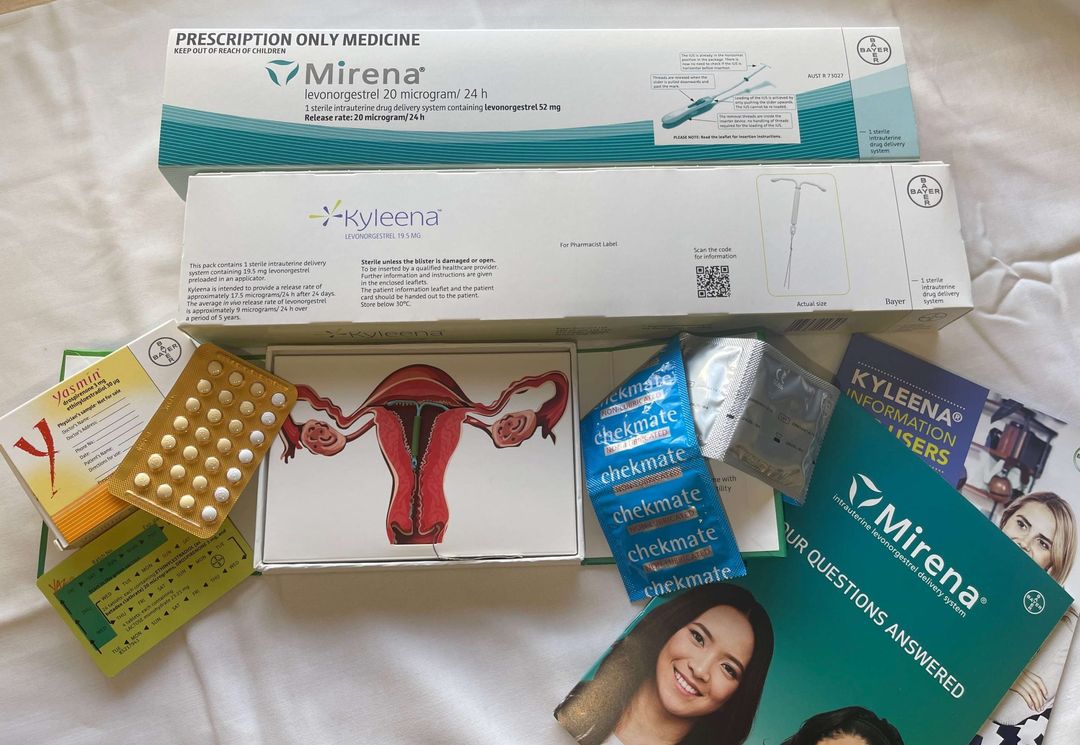Gynaecology
Contraception
Whether you’re exploring contraceptive options for the first time, you’re looking to change your contraception or your family is complete, there are so many options available.

What is Contraception?
Contraception is defined as “the deliberate use of artificial methods or other techniques to prevent pregnancy as a consequence of sexual intercourse”.
When considering what method to choose, it is important to bear in mind:
- If it is effective in preventing pregnancy
- Existing health issues
- Ease of use
- Risks and side effects
- Cost
- Other benefits (e.g. – acne)
- Permanence
- Protection against sexually transmissible infections (STIs)
What are the different types of contraception?
There are six main groups of contraceptives available in Australia, and their efficacy and suitability varies from one person to the next.
Barrier Methods
These include both the male and female condoms, as well as diaphragms. They provide a physical barrier to conception by preventing the sperm from reaching the egg. When used correctly, they can be up to 98% effective as a contraceptive and are the only contraceptive that also protect against STIs.
Hormonal Contraception
This includes the combined and mini contraceptive pills, as well as the contraceptive vaginal ring. Used daily, this release of low-dose hormones which prevent ovulation and / or make the female reproductive tract less receptive to implantation. Hormonal contraception does not protect the user from STIs, but can be up to 99.7% effective.
Contraceptive Implants and Injections
These can be small rods (Implanon NXT®) or an intramuscular injection (Depo Provera®), which slowly release low levels of hormones that prevent ovulation and may cause changes to your menstrual pattern. Again, these offer no protection against STIs, but may be up to 99.9% effective.
Contraceptive Intrauterine Devices (IUDs)
Devices such as the Mirena®, Kyleena® and copper intrauterine devices are inserted into the uterus by a Health Professional, rendering it unreceptive to implantation. They are generally highly effective, long-lasting and well-tolerated by most women, but do not offer any protection against STIs.
Sterilisation
Permanent contraception (sterilisation) for men (vasectomy) or women (endometrial ablation or tubal ligation) involves a small operation by a doctor using either local or general anaesthesia. Sterilisation methods are 99.5% effective and cannot be reliably reversed.
Other methods
Other methods of contraception include Lactational Amenorrhoea (LAM), Fertility Awareness Based (FABM), Withdrawal and Emergency Contraception. However, the efficacy of these methods is highly variable, and as such they are not routinely recommended.
Frequently asked questions about contraception
How do I know what contraceptive is best for me?
There are many factors that can influence your choice of contraception, including your general health, age, frequency of intercourse and your family medical history. In addition, some forms of contraception are associated with health risks and side effects. That’s why it is important to talk to a health care professional to help determined the best method of contraception for you.
Are there any health risks or side effects associated with contraceptive use?
Different contraceptives carry different health risks and side effects. These can range from localised irritation to more serious effects such as blood clots and cardiac risk. That is why it is important to talk to a health care professional to help determine the best and safest contraceptive method for your individual circumstances.
How effective is contraception?
No method of contraception is 100% effective at preventing pregnancy, with each different type of contraceptive performing differently. Efficacy is influenced by many factors, including how and when the contraceptive is used. Your Doctor will be able to advise you on the most effective contraceptive for your unique needs.

